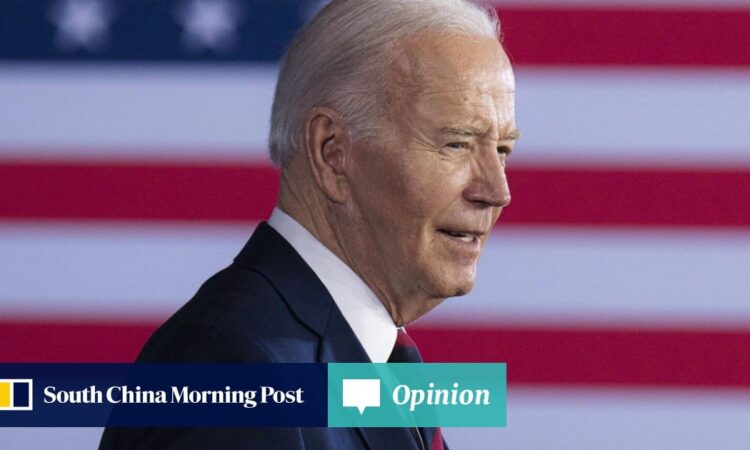
Puny Hong Kong is a threat to the mighty United States? Apparently, it is, and not just any threat, but “an unusual and extraordinary threat” at that. That’s what US President Joe Biden declared this week when he again extended the “emergency status” of the city.
The executive order was first made by his predecessor Donald Trump in response to the national security law Beijing imposed on Hong Kong following the anti-government riots in 2019.
“The situation with respect to Hong Kong, including recent actions taken by the People’s Republic of China to fundamentally undermine Hong Kong’s autonomy, continues to pose an unusual and extraordinary threat to the national security, foreign policy and economy of the United States,” Biden said.
How does that compute? Hong Kong’s autonomy? There is no such thing, at best, it’s a “high degree of autonomy”. But how high or low? Well, Washington says let it be the judge.
The world’s sole superpower does what it likes. It unilaterally declares this country, China, is committing genocide but not Israel. It decides some children, who are Ukrainian, are worthy of life but not others, who are Palestinian. And so, during the Nato summit in Washington this week, the US and its key allies condemned a Russian bombing of a children’s hospital in Kyiv that killed scores of people while remaining silent about an Israeli bombing of a school in Gaza that killed scores of people.
Under the executive order, the city is considered just another mainland city and faces the same sanctions or restrictions such as the ban on the transfer of sensitive US technologies. Holders of Hong Kong passports face the same restrictions as mainlanders who wish to travel to the US.
That’s just as well because if you look Chinese these days, you tend to get harassed by rude, burly and aggressive immigration and customs agents at US airports and other border crossings.
I have received such privileged treatment at a Canadian-US crossing recently on my way to an academic conference. The guy almost went proctologist on me and he looked like someone who might enjoy it. Thankfully, I probably didn’t meet his beauty standards.
But apologies for oversharing. Back to Hong Kong. The city is obviously no threat, but it’s a convenient target.
Washington has been paranoid about tech transfers to China, but especially with advanced semiconductors. So it’s imperative that Hong Kong’s once special trade status cannot be exploited to ship those restricted chips through.
That’s the immediate concern. There is a long-term goal. When the US takes on another adversary, it needs to demonise it first. The bigger and more powerful that country is, the longer and greater efforts it takes to do the propaganda – up to the point of war.
That has long been Washington’s modus operandi, as it can always rely on a compliant mainstream news media.
China is as big and powerful as they come since the fall of the Soviet Union. That’s why there is the ongoing multi-year propaganda campaign to pick on China over Tibet, Xinjiang, Taiwan and more recently Hong Kong.
It’s hard to believe Washington really cares about democracy and human rights in all those Chinese places, as opposed to its questionable friends in other parts of the world.
They certainly don’t care about all that in Gaza where Israel has levelled schools, hospitals and mosques, with US-supplied bombs.
In rebutting Washington, the local office of the foreign ministry criticised the US for its worsening “persecution fantasy”. That’s a mischaracterisation; it’s more like a US prosecution fantasy, that it can go after anyone, anywhere, anytime, with no regard for international law and norms.






